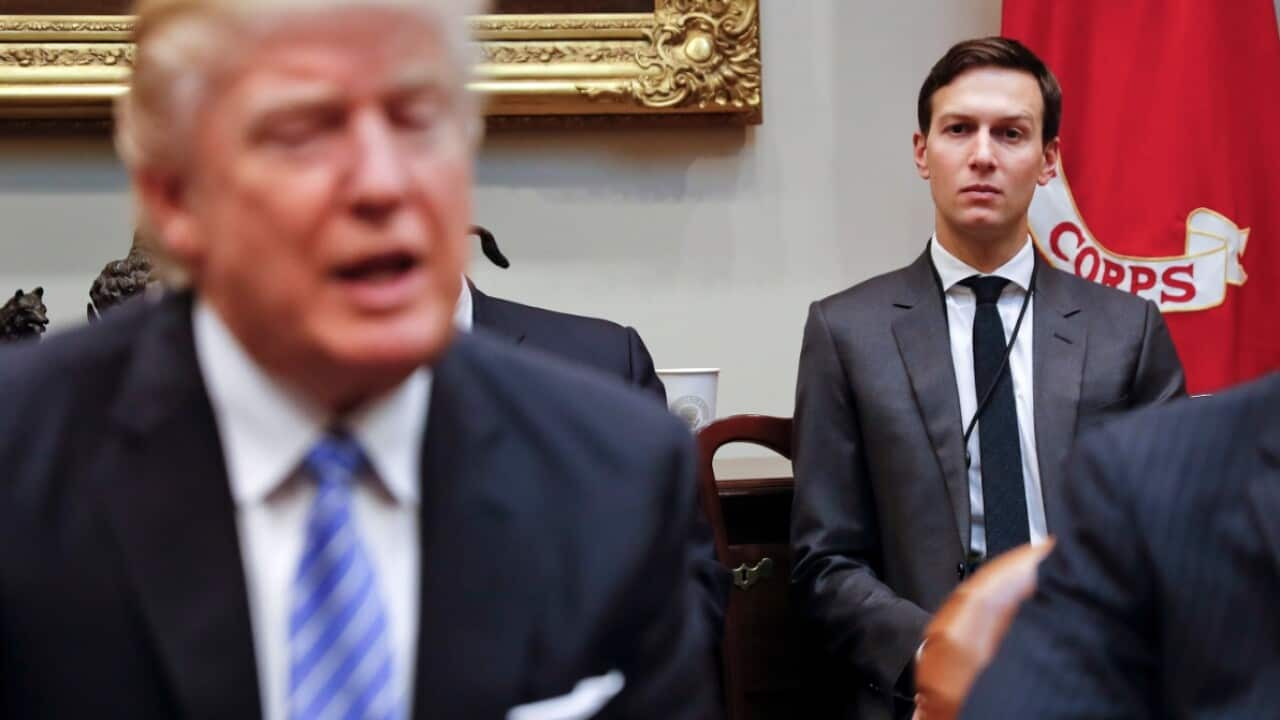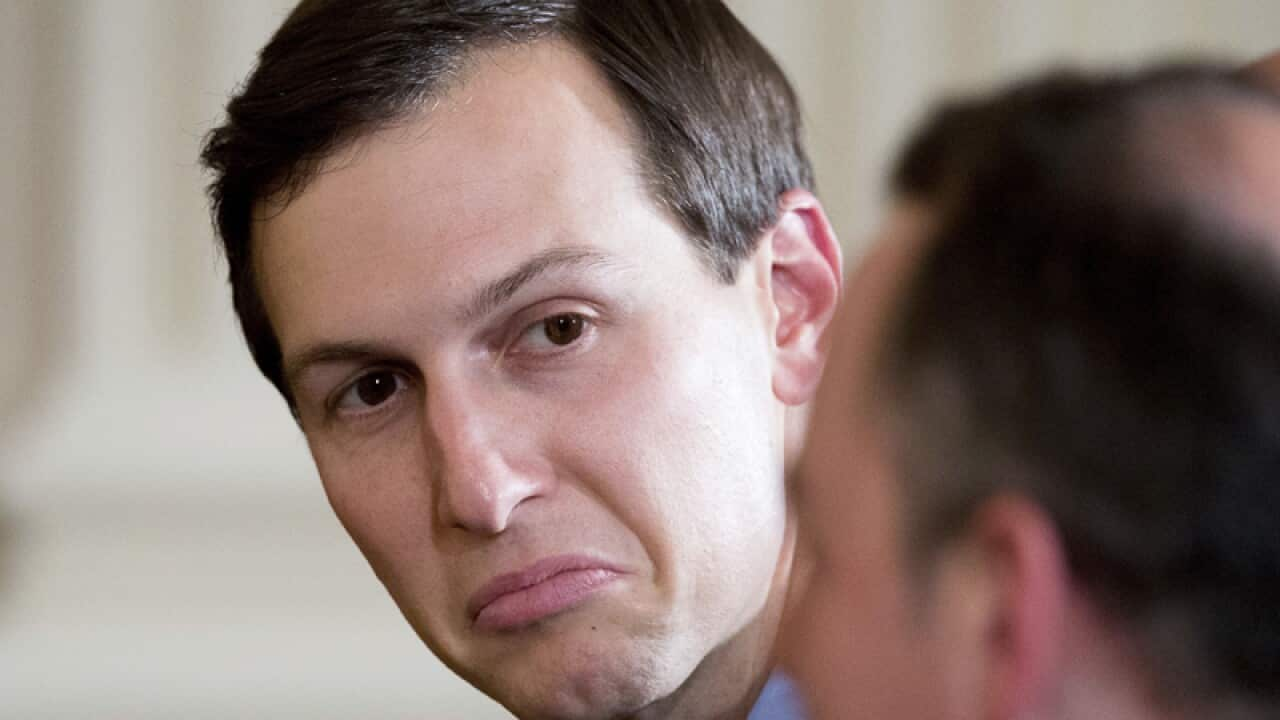Returning late Saturday from his first foreign trip as president, Trump geared up to combat concerns over advisers' ties to Russia, including explosive reports about Jared Kushner, his indispensable aide-de-camp.
Trump was meeting with attorneys at the White House on Sunday, presumably over the latest development in the long-running Russia intelligence saga, news reports said.
US media also said the White House is creating a new rapid-fire communications unit to respond to the controversy, led by Kushner, senior presidential adviser Steve Bannon and White House Chief of Staff Reince Priebus.
Trump, who had been uncharacteristically quiet on Twitter during his nine-day trip abroad, resumed his favorite past-time with fury on Sunday, dismissing allegations of Russia ties as "fake news" and "fabricated lies."
"It is my opinion that many of the leaks coming out of the White House are fabricated lies made up by the #FakeNews media," he wrote the morning after his return home.
"Whenever you see the words 'sources say' in the fake news media, and they don't mention names it is very possible that those sources don't exsist but are made up by fake news writers. #FakeNews is the enemy!" the US leader wrote, spelling errors and all.
No respite
The administration had hoped Trump's nine-day turn in the international spotlight would offer a respite from relentless coverage of an ever-widening probe into Russian meddling in last year's election and possible collusion by the Trump campaign -- with its endless barrage of newspaper scoops and explosive revelations.
However, the eve of his return brought the biggest story to date: A Washington Post report Friday about Kushner's alleged proposal to the Russians to create a secret channel out of earshot of US spymasters.
The talks between Kushner and the Russians, if confirmed, raise new questions about the Trump team's relationship with Moscow, which US intelligence agencies say tried to sway the November election in Trump's favor.
Meanwhile, a parade of senior Republicans appeared on US airwaves on Sunday to tamp down the story's significance, some saying it was not all that unusual to seek to establish "back channel" ties with a foreign government.
Kushner a focus in FBI's Russia probe
Trump's National Security Advisor H.R. McMaster refused to talk about the allegations, but said that generally speaking, "we have back-channel communication with a number of countries... I would not be concerned about it."
His comments were echoed by the administration's Homeland Security Secretary John Kelly.
"It's both normal in my opinion and acceptable," he told ABC television on Sunday.
"Any way that you can communicate with people, particularly organizations that are maybe not particularly friendly to us, is a good thing and, again, it comes back to whatever the communication is, comes back into the government and shared across the government so it's not a bad thing to have multiple communication lines to any government," he said.
Trump calls Russia probe a 'witch hunt'
Kushner under fire
Kushner made his secret communications proposal on December 1 or 2 at Trump Tower in New York, according to intercepts of Russian communications reviewed by US officials, the Post reported late Friday.
Michael Flynn, who was Trump's national security adviser for just 24 days before being fired amid questions about meetings he held with the Russian ambassador, was also present, the newspaper reported.
Kushner boasts an enormous portfolio of domestic and international responsibilities, underscoring his importance as Trump's chief adviser despite having no experience in politics before the 2016 White House race.
He is the only person currently in the White House known to be under investigation.
Some critics have called for Kushner's security clearance to be revoked, others say he should temporarily step aside while his ties to Moscow are being reviewed.
The wider investigation into Russia's alleged election meddling is being led by Robert Mueller, a respected former FBI director who was given broad powers to pursue the case as a special counsel after Trump abruptly fired Comey on May 9.
The Senate and House Intelligence committees are also leading their own investigations, but not with an eye to bringing criminal charges.
Meanwhile, some leading Republicans cast doubts on the Post story's plausibility, suggesting the whole episode may be a Russian ruse to throw America's political system into an even deeper tailspin.
"We're chasing our tails as a nation when it comes to the Russians," US Senator Lindsey Graham told CNN.
"I don't trust this story as far as I can throw it," he said. "The whole story line is suspicious."
Related reading

Trump promises climate decision next week after G7 stalemate













